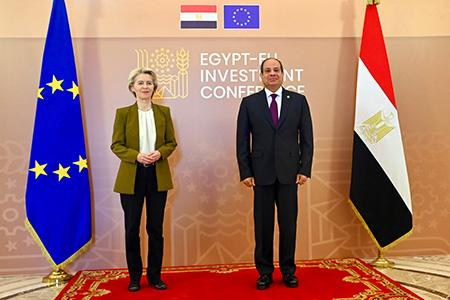
Good morning.
It has a sort of a Cloud Atlas feel to it: Google, a member of the advanced society known as “American Big Tech” has descended upon Europe, a backwater continent that was once on the cutting edge of technology, to train a select group of its tribespeople in a futuristic technology called “artificial intelligence” and some of its most advanced projects, including “AlphaFold” and “Project Relate.”
Perhaps I’ve let the science fiction writer in me get carried away in interpreting this week’s announcement by Google. But it is somewhat reminiscent of the British author David Mitchell’s 2004 blockbuster novel: Alphabet, the fourth largest company in the world, known for AI applications such as DeepMind and Gemini, is launching the €25 million AI Opportunity Initiative for Europe “to help provide training and skills to support people and countries to be successful in seizing the opportunity of AI.”
It could be read as an indication of just how far behind Europe has fallen: Big Tech now sees educating Europe’s workers as its corporate social responsibility. As recently as 2008, the European Union was the largest economy in the world. Now, on AI at least, it might as well be the Middle Ages.
Matt Brittin, Google’s president for Europe, the Middle East, and Africa offered some context on the announcement: He told me that Google’s €25 million is mostly meant as a seed fund, to help set up programs that could eventually reach millions of people across Europe, with the help of governments, other companies, and unions. Here is what else he said:
On the role and purpose of AI training
“Not everyone is going to be an AI researcher. It’s like in the industrial revolution: Not everyone went to work in an electricity station. But you want people to use the technology.”
On who might use AI
“You don’t need a formal education; AI can help you write clearly. And you don’t need to understand scientific articles. If you know how to use it, AI can explain them in the language of a 12-year-old.”
On AI’s most impactful applications
“The best examples are not in chatbots, but science and health…Take breast cancer scans: AI can interpret them as accurately as a clinician can. It saves lots of time. That means more women can get scanned, and experts can get to those who need treatment quicker.”
On the opportunity for smaller companies
“It used to be that only the large German car manufacturers could reach global scale. Now, it can be a shoemaker in Stockholm. AI can help it spot consumer behavior, get more conversion, grow, and export.”
On how Europe can harness AI for good
“You need three things: You need to have clear rules of the road. You need people with the skills to work on it. And you need the companies to seize the opportunity.”
There may be a touch of Cloud Atlas-style dystopian condescension in the notion of bringing AI to the benighted continent of Europe. But for Google, the €25 million it invests in training European workers may well deliver a multifold return. According to research it ordered, AI could increase the size of the EU economy by €1.2 trillion, and save the average worker over 70 hours a year. Not bad for a backwater.
More news below.
Peter Vanham
[email protected]
@petervanham
This story was originally featured on Fortune.com






